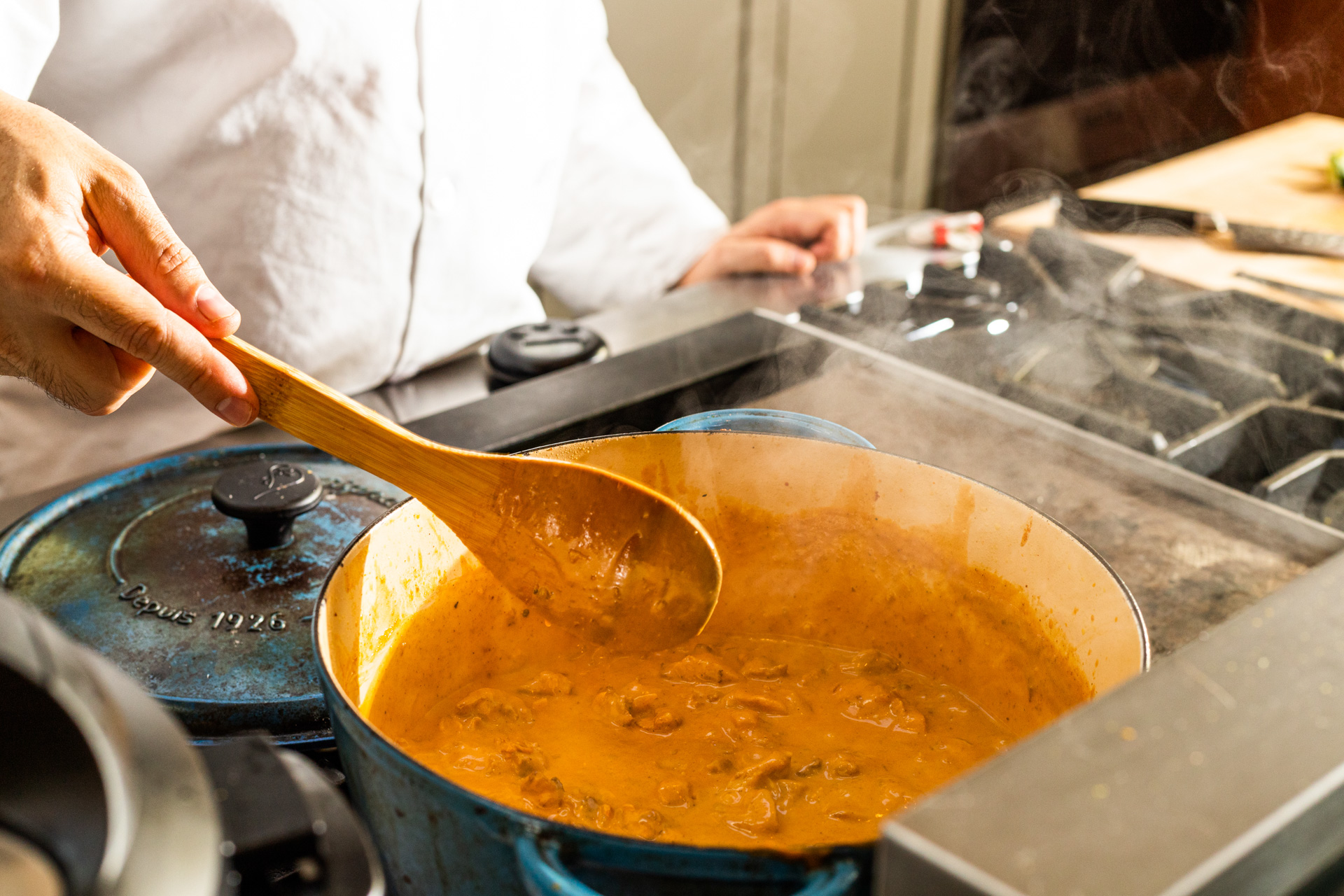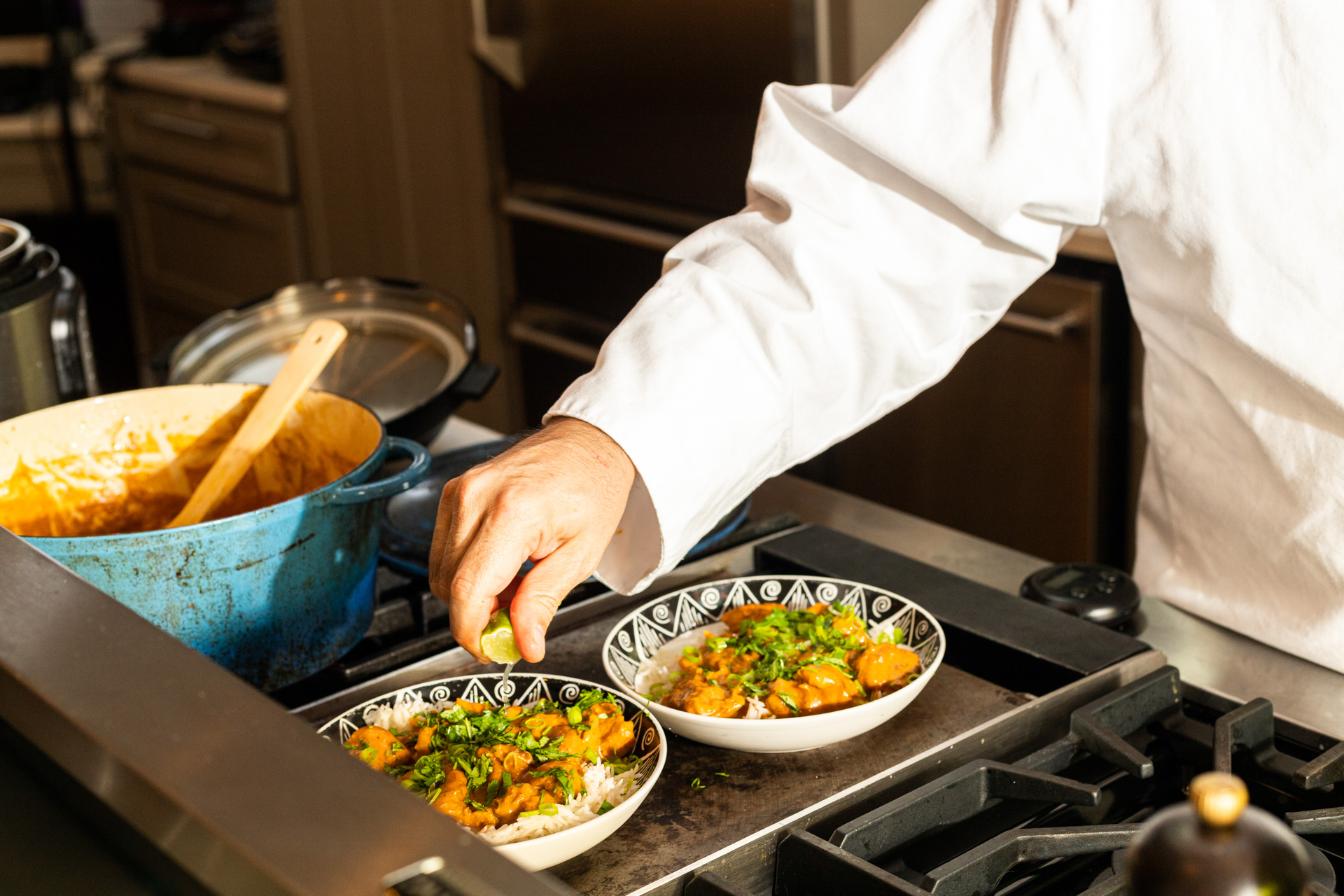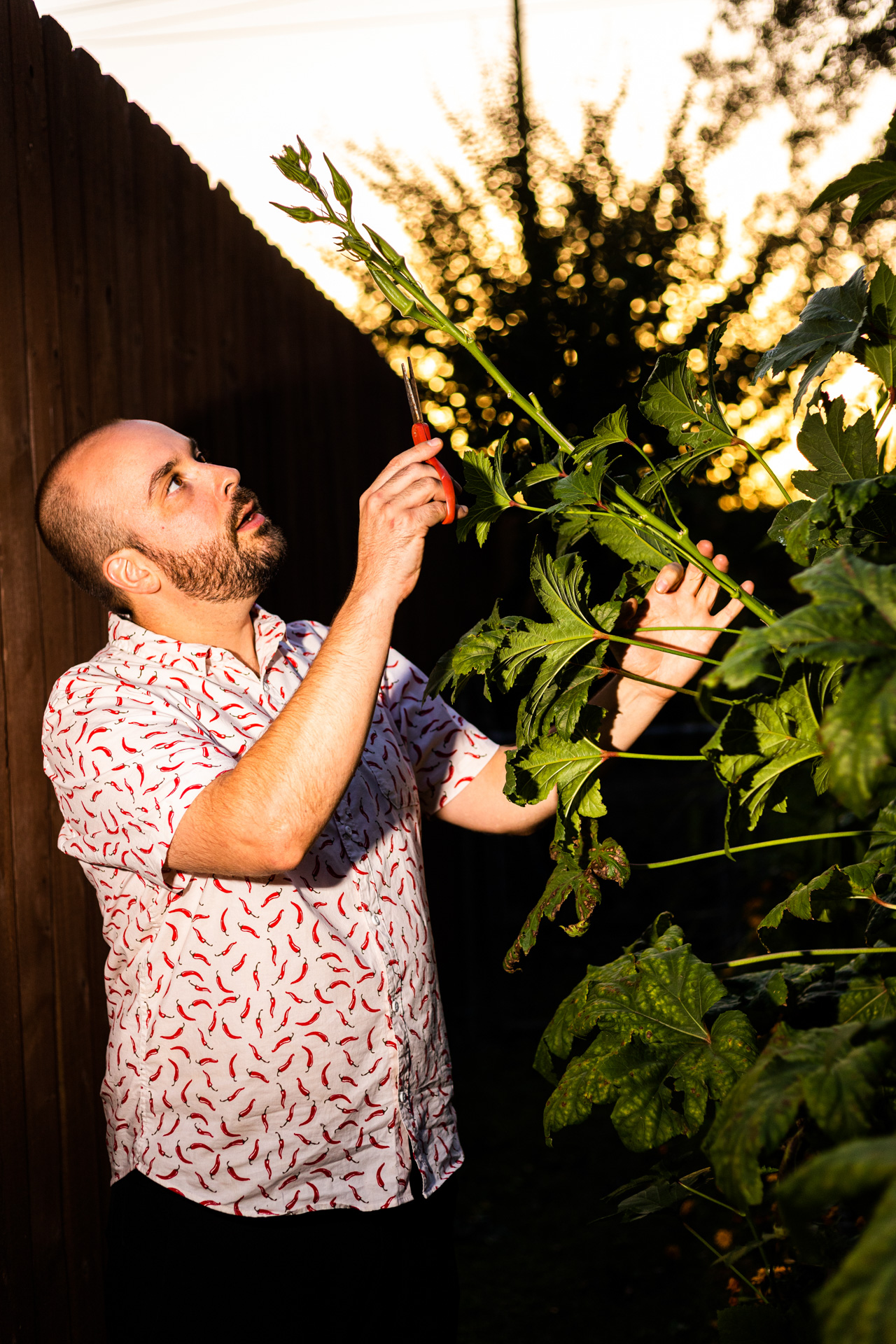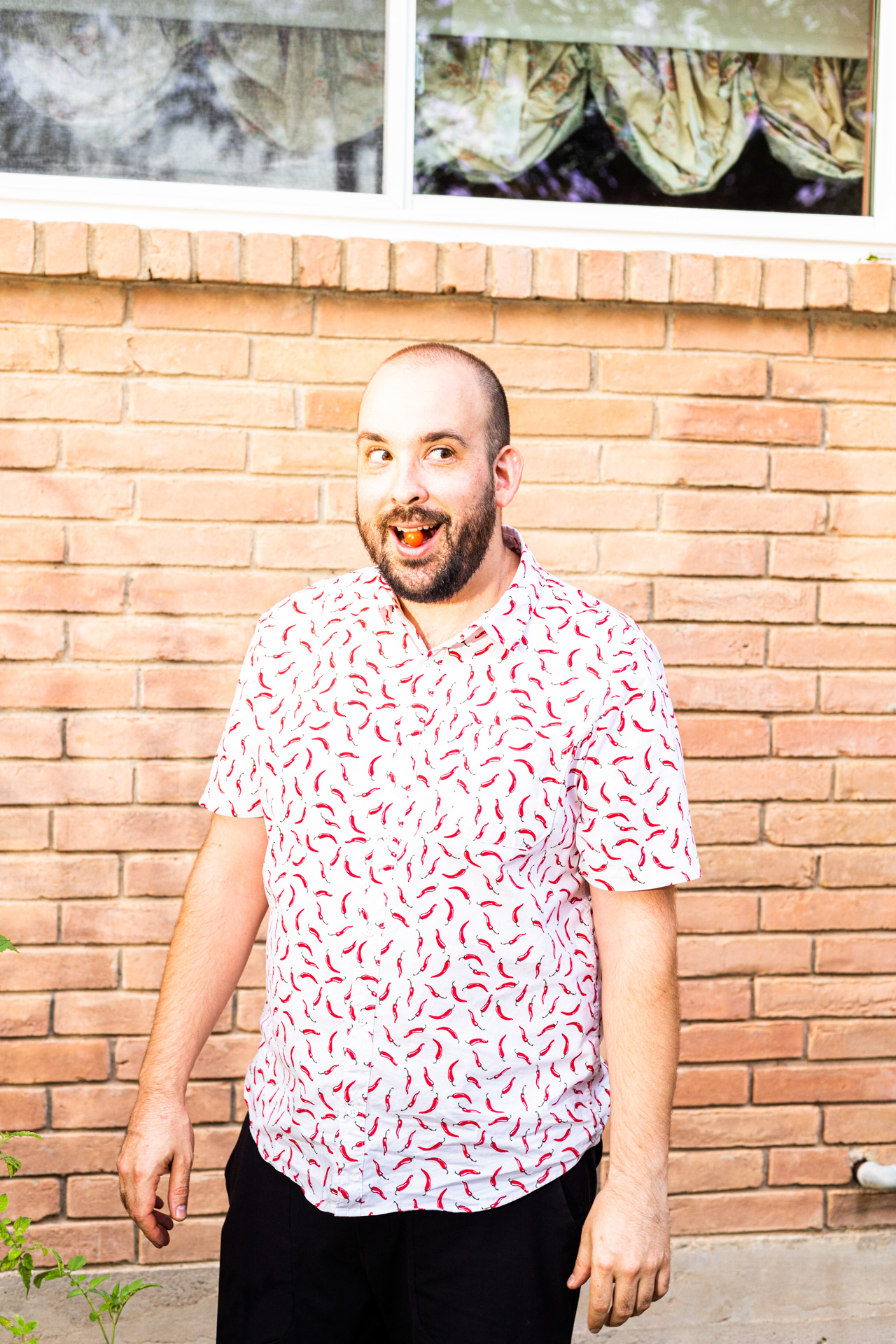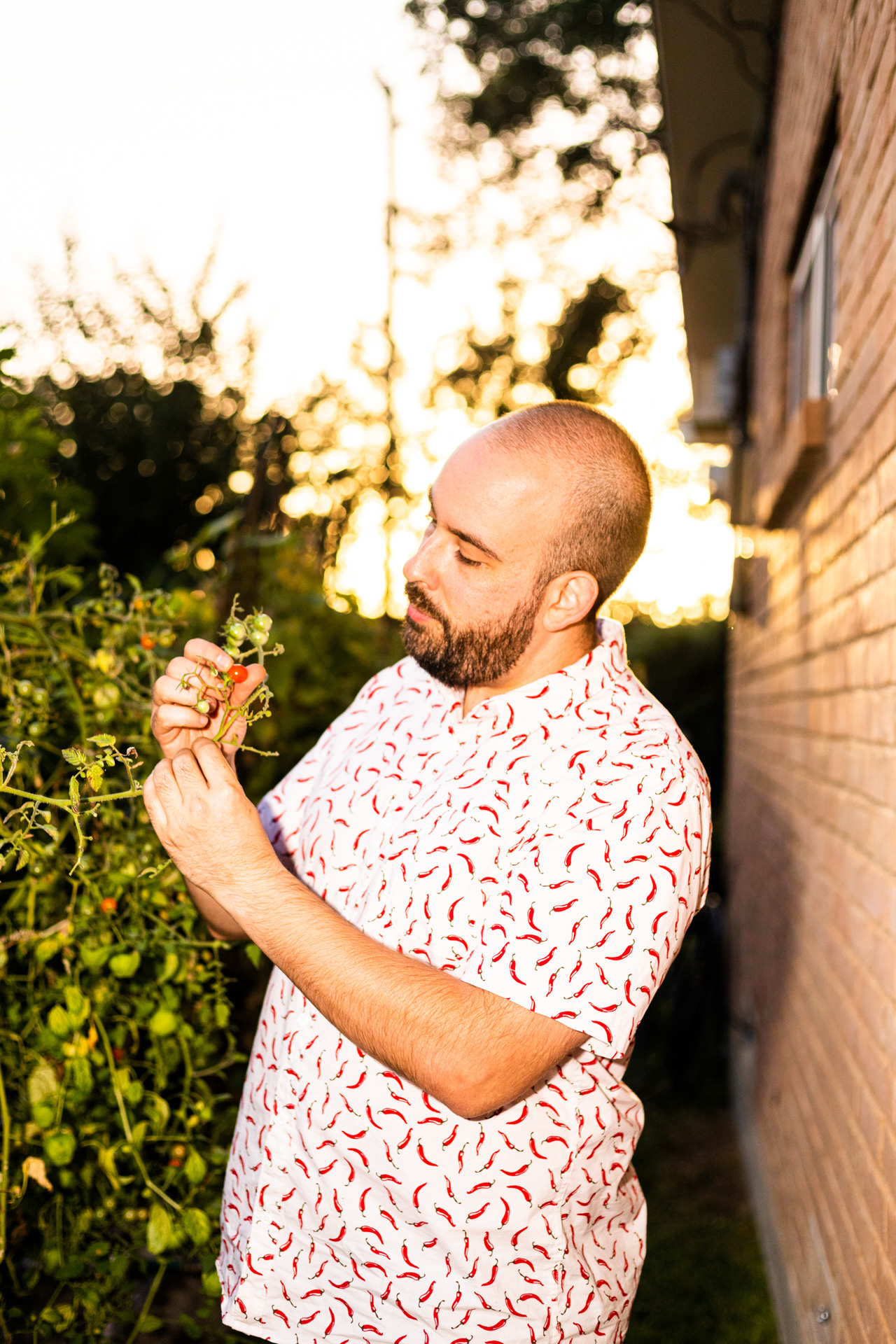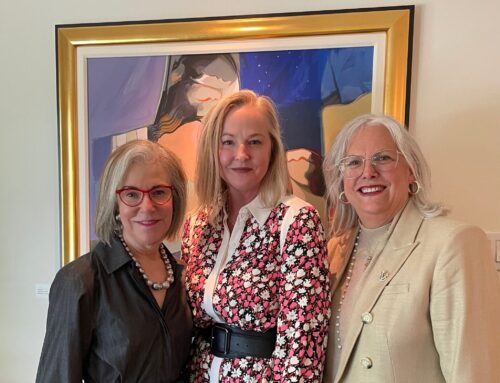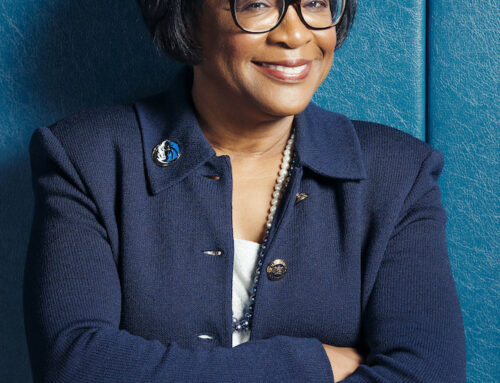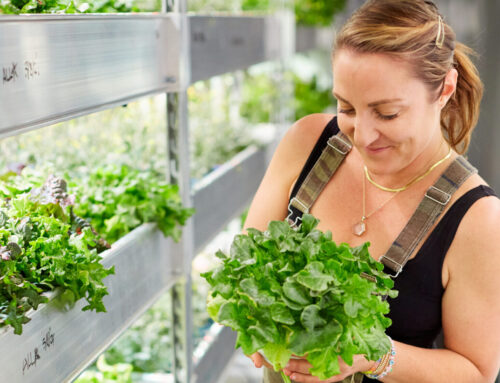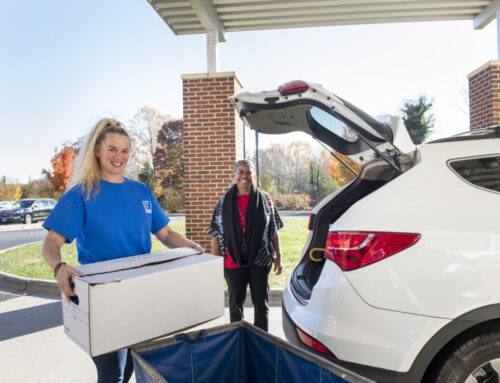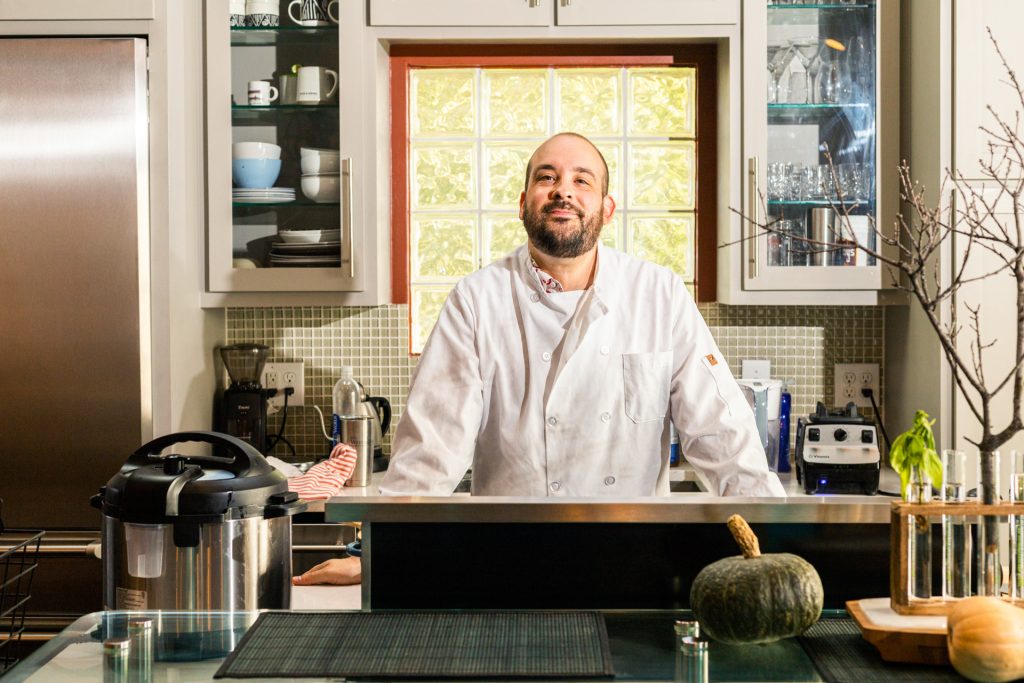
Photography by Jessica Turner.
CLAYTON KAHLER BROWN lives two doors down from his childhood home in Melshire Estates, where his parents still reside. They let him build a garden in their yard, and he grows vegetables and plenty of herbs. He says he’s happy to be building his business, Crescendo Culinary, in Dallas, but it’s sometimes weird to be back in the neighborhood. After all, he couldn’t wait to leave town when he graduated from Hillcrest.
As a kid, Brown liked to bike around the neighborhood and play catch with the other kids. When his grandfather came to visit from California, they would walk to the fire station on Nuestra Drive. In school, he played sports — baseball, golf, wrestling and more — and he discovered a talent for singing, which he pursued in college. Eventually, it took him to New York City. He has performed in more than 20 operas and musicals ranging from Brahms’ Requiem to Into The Woods and received an encouragement award from Chautauqua Opera, the fourth-oldest American opera company. It was also in New York where he found a love for cooking. After a decade, he returned to Texas to start his company.
Crescendo Culinary combines Brown’s talents. He provides two services: preparing weekly meals for clients, and catering and entertaining at private parties. As of publication, he could take on three more weekly clients and was eager to use the rest of his time to cater and entertain.
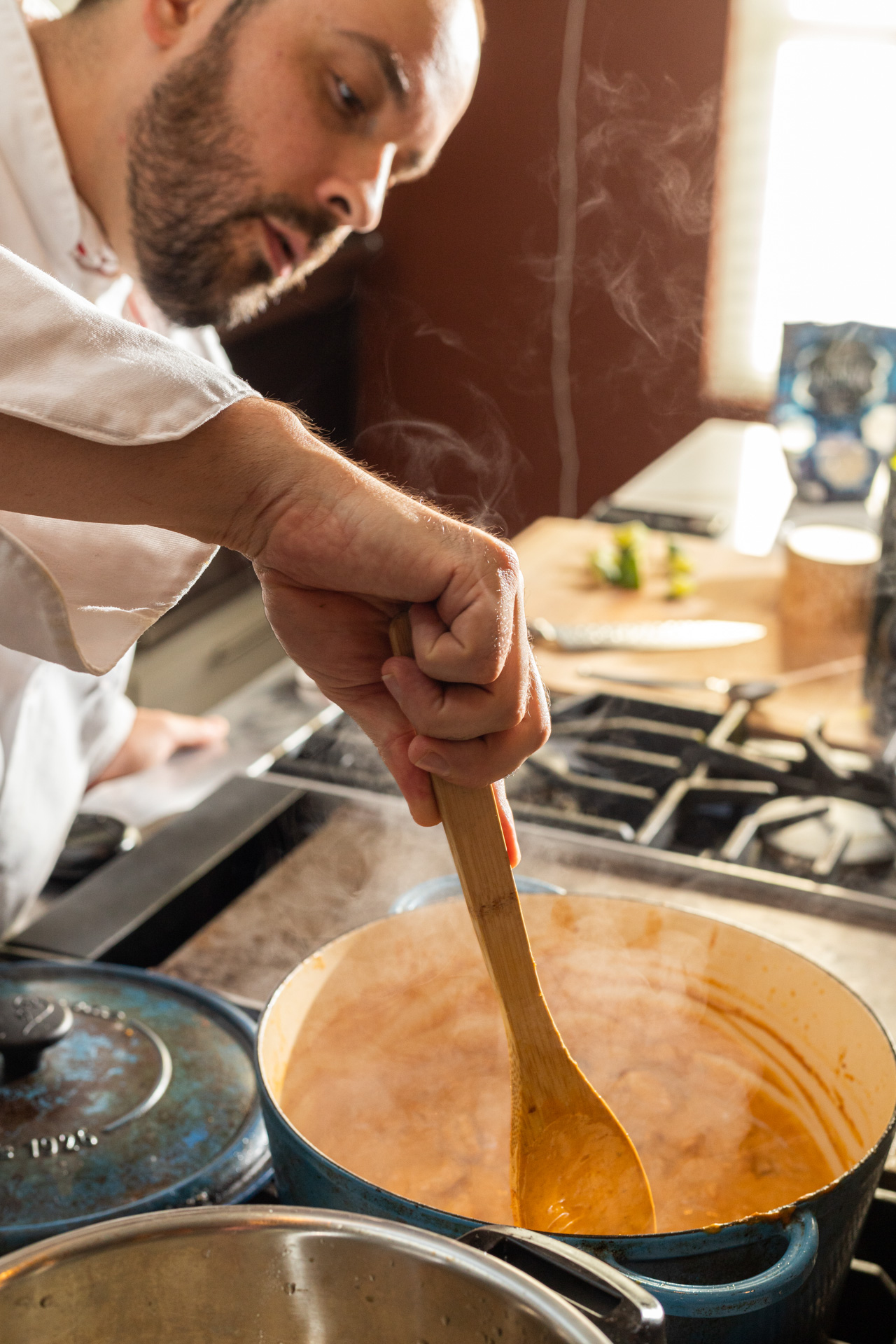
What did you want to be when you grew up?
I wanted to do something in advertising. I wanted to make commercials for Nike or anything big. And then I realized very quickly, you can have the best education and go to all the best places and wind up doing ads for a sun tanning booth in the back of a newspaper. It wasn’t until my junior year when I was Tevye in Fiddler on the Roof. It was the first musical I ever did. And I fell in love with singing, and I fell in love with performing. I knew that I wanted to pursue that. I attended a summer camp at Oklahoma City University, where I met Florence Birdwell, who is the Kelli O’Hara, Kristen Chenoweth teacher. I knew that I wanted to study with her and ended up going there for my undergrad and had a fantastic education.
What made you want to audition for Fiddler on the Roof?
I had seen it as a child. I remember really enjoying it. And I thought, “heck, I’ll just audition for it.” I auditioned for it, got the lead role, and the rest is history. I did a production at Hillcrest, and then I ended up doing another production at Oklahoma City University where I was Perchik, not Tevye.
When did you first start singing?
I grew up singing in the church choir from the age of 3 or 4 years old. I wasn’t the kind of kid that sang at home. I had no idea I could sing, and I got a solo. I got up and sang in front of everyone at the church, and my mom freaked out, just started bawling. I didn’t have a voice lesson until I went to college.
Garam masala chicken with rice.
Of the performances you’ve done, what have been your favorites?
Fiddler on the Roof is still my favorite musical. One of my favorite roles that I have ever done is Billis in South Pacific because it’s such a character role. I really, really love diving into character roles. But I’ve also had the opportunity to do opera. And I’ve got to perform Italian opera in Tuscany.
Have you ever been nervous before a performance?
I specifically remember doing a production of The Ballad of Baby Doe at Oklahoma City University, and I had the lead role, Tabor. I remember being in the wings and being super calm. It was a dress rehearsal. And I went out and I completely forgot my lines. It taught me a valuable lesson that it’s important to feel those butterflies. It’s important to feel that energy that people call nervousness and to use that to your advantage to keep you alert and awake and keep you moving yourself forward.
What happened after you graduated from Oklahoma City University?
I decided to go to Manhattan School of Music and study with Ron Raines because I knew that I didn’t have the technique to sustain an eight-show-a-week schedule. He taught me how to sing in a healthy way, to where I’d be able to maintain my voice for long periods of time without getting tired.
And then what?
I immediately got a church choir job. Church choir work in New York City could have its own union. And I sang there 10 years. That connected me with all the different singers in New York. I did a lot of work with St. Petersburg Opera in Florida. I did work with Charlottesville Opera in Virginia. And I would do concert work, and in between I would bartend. I did bartending for private chefs, private parties, which is the best way to bartend in New York, because at most you have 50 or 60 clients. That connected me with private chefs, and then I started to do kitchen prep with them. I learned how to hold a knife and not chop my fingers off. I learned how to prepare meals and prepare things efficiently. That got me very interested in cooking and took me into all five boroughs going to local markets.
How did you learn about bartending?
One of my other really good friends in New York City, Jake Greenberg, another composer. I’m friends with composers because they’re a little bit more intellectual. And I like nerds. I started singing some of Jake’s music. I would go over to Jake’s house, and we would hang out; he had this beautiful bar setup. And he would make me cocktails. Before I met Jake, I was drinking Jameson. I had Jameson and Coke. And he showed me the entire world of different cocktails.
What was it like being in New York City at the start of the pandemic?
I was in rehearsal for Verdi’s Requiem. We were about to start our first rehearsal, and it shut down. We had no idea what was going on. Early March, we got word that something was happening and that there was going to be food shortages or something. My buddy Jake and I went to Costco and got a bunch of food and stocked our freezers. When things locked down, I don’t think I left the apartment. We didn’t know what was going on. We just remember looking at the news and seeing bodies piling into semi trucks and being taken away. We thought it could go through the air ducts. I think I kept my windows open 24/7. Luckily, I had roof access, and that’s how I would get sun.
In his garden, Brown grows herbs, tomatoes and okra.
How was the transition of moving back to Texas?
For the longest time I felt like I was failing, leaving New York. I was like, what’s wrong? Why don’t I have the pocket to be able to stay here and ride the storm out? But I just didn’t. I’m so happy that I’m here. Building a company in New York City is very different, obviously, from building a company in Texas. Here in Texas, it’s just not as expensive … The pandemic really showed us just how fragile the performing industry is. It depends on an audience, and an audience that can’t sit six feet apart. You have to fill a house just to be able to break even with a lot of these shows. I just don’t think this is going to be the last pandemic. Hopefully the last of our lifetime, but I mean, probably not. And I can’t imagine building a career on the stage to have it taken away again. It’ll always come back, of course, but I guess I’m just thankful that I’m building a business where I get to make money doing the things I love, which is cooking and singing. And I’m not necessarily dependent on bartending and stage work to pay the bills.
How did you decide to start Crescendo Culinary?
Whenever I get the chance, I travel. I have an old ’95 pickup truck with a camper topper on the back, and I’ll put my full size mattress in there. First, I’ll go to Palo Duro State Canyon Park, and I’ll spend the night there. And then I go to a place in New Mexico, in Santa Fe. Then I make my way over to Colorado. I camp around Colorado, and I see my sister. When things were paused during the pandemic, I took a lot of time to do that. That’s when I was alone and hiking in the woods, where I was able to have the silence to be able to just cook with fire and cook for myself, where I was like, I think I want to do this in Dallas. I think I want to pursue cooking for people, and I can be a private chef. I like cooking for clients in their homes. And I like bringing people together for a party and not having to be in the back in the kitchen. I’m a performer. You get me as a cook, a singer and a personality.
How did you decide on a name?
I knew that the backbone of my work would be prep for weekly meals. But I also wanted to cater, and I wanted to provide the entire experience of food and entertainment. Crescendo is a musical term that means to grow. And I like to think that starts with me sauteeing onions or boiling water to me performing and singing at the end, to eating, celebration, drink and cheer.
Do you pick the songs you sing?
I do, but I am 110% open to people. If somebody wants to hear a song by Garth Brooks or James Taylor, I’m happy to learn the music and perform that kind of music. I’ve sung a wide variety of things from Italian opera in Tuscany to traveling around with Wynton Marsalis in the Jazz at Lincoln Center Orchestra. Jazz, musical theater, opera, country, folk songs — I do it all.
What’s one kitchen tool you can’t live without?
Chef’s knife. I’ve got a really cool one. It’s a 67-layer, Damascus steel knife. And I love having my Google assistant so that I can tell it things, I can ask things, and it can play Vulfpeck while I cook.
Interview has been edited for clarity and brevity.


